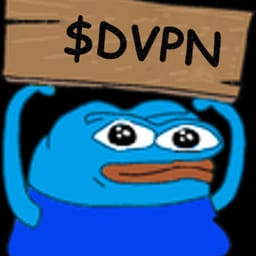Opinion: Google's VPN Shutdown Highlights Need for dVPNs Like Sentinel

Google One VPN to be Discontinued
The Google Graveyard has claimed another victim, this time in the form of the VPN included with Google One, the company's subscription-based cloud storage plan. Google recently sent emails to users, announcing the VPN's impending demise later this year, citing lack of usage as the primary reason.
"We're refocusing our efforts to support more in-demand features with Google One," the company told PCMag. "To keep our subscription service fresh, we're discontinuing the VPN feature, as we found people simply weren't using it."
Google also pointed out that other VPN services are already available on its app store. The VPN service will remain for those with a Pixel 7 or Pixel 8 phone, but it will be removed from other Google One accounts in the coming months.
Google's VPN: A Lackluster Service
The VPN was first added to Google One in 2020 as a free privacy feature. However, a review of the service found it to be lacking compared to the competition, missing features such as the ability to select VPN protocols and spoof locations. As a result, Google likely viewed the VPN more as an add-on than a full-fledged service.
While the shutdown isn't a total surprise, it perpetuates Google's reputation for launching and quickly killing products and services, such as Stadia and Google Podcasts. The VPN industry has had a rough year, with Atlas VPN, a service with 6 million users, also shutting down due to competition and rising costs.
The Rise of Decentralized VPNs
As centralized VPN services continue to face challenges, decentralized alternatives like Sentinel are poised to fill the gap.
Decentralized VPNs (dVPNs) offer numerous advantages over traditional VPNs:
- Increased privacy: dVPNs like Sentinel operate on a decentralized network of nodes, ensuring that no single entity has access to user data or can compromise the entire network.
- Censorship resistance: With nodes distributed globally, dVPNs are more resilient against censorship attempts by governments or other entities.
- Improved security: Decentralized architecture makes it much harder for attackers to target and compromise the entire network.
- Community-driven: dVPNs like Sentinel are often built and maintained by a community of users and developers, ensuring that the service remains focused on user needs and privacy.
The Future of Online Privacy
As more users become aware of the importance of online privacy and security, the demand for reliable, transparent, and user-centric VPN solutions will only grow. Decentralized VPNs like Sentinel are well-positioned to meet this demand, offering a more secure, private, and resilient alternative to centralized services that may be subject to the whims of large corporations or government pressure.
In light of Google's VPN shutdown, it's clear that users need to look beyond traditional, centralized solutions and consider the benefits of decentralized alternatives. By embracing dVPNs like Sentinel, users can take control of their online privacy and security, ensuring that their data remains protected even as the VPN landscape continues to evolve.
Join Our Journey
At dVPN.news every member of the Sentinel community is a contributor. Whether you're writing articles, sharing tutorials, or participating in discussions, your involvement is what drives our collective growth, and best of all it's rewarded! Together, so if you to contribute to the growth of the Sentinel Network, you are in the right place!

Connect with Us
Stay in touch and be part of our growing community:
- Follow Sentinel on X (Twitter)
- Follow The Growth DAO on X (Twitter)
- Join The Growth DAO community Telegram Group






